The Japanese Abandon Their Cars

Japan’s Internal Affairs Ministry has bad news for Japan’s automakers: Japanese citizens are dumping their cars and take the train. Domestic car ownership has declined for the first time since 1964, with declines particularly pronounced in big cities, report The Nikkei [sub]: “Less-status-conscious city residents are abandoning cars for public transit.”
The ministry surveys the number of cars owned per household every five years. The latest study counted 1,414 cars per 1,000 households, declining 2.2 percent from the previous 2004 poll. This marked the first fall since 1964, when the first study was conducted.
2.2 percent less is not mass abandonment. But it’s a turn. The Nikkei has a darker view: “The latest trend bodes ill for the domestic auto market and hints at a shifting sociocultural landscape, where once-common practices, such as buying a larger vehicle after starting a family or upgrading to a higher-end model after a job promotion, are no longer considered important.”
Here are the more interesting numbers: Car ownership tumbled 6.4 percent among the under-30 population and slid 6.6 percent among individuals in their 40s. Younger generations nervous about their economic futures are shying away from auto purchases, while the middle-aged are parting with their vehicles amid a deteriorating income environment.
And they are indeed switching the cars for the train: The drop in vehicles owned per household was the sharpest in Kanagawa Prefecture at 7.7 percent, followed by Chiba Prefecture’s 7.5 percent, Saitama Prefecture’s 7.2 percent and then Tokyo’s 6.9 percent. These prefectures are all part of the greater Tokyo area, bedroom cities connected by a vast and efficient public transportation system with the city core. Tokyo has one of the, if not the, most comprehensive subway systems in the world. You don’t need a car there. Most of the times, it’s a burden. We have an apartment in Tokyo, no car. My wife owns a building lot. She makes a lot of money by renting it out as parking space.
For the few times you want a car, ther are alternatives. Domestic car-sharing sites more than doubled from a year earlier to 861 locations. Membership surged 150 percent.
Carmakers are getting desperate to attract the few young buyers that some are even holding events at elementary schools in Tokyo to drum up interest in cars among blase children. Toyota sends mechanics to schools to explain and show how cars work.

Bertel Schmitt comes back to journalism after taking a 35 year break in advertising and marketing. He ran and owned advertising agencies in Duesseldorf, Germany, and New York City. Volkswagen A.G. was Bertel's most important corporate account. Schmitt's advertising and marketing career touched many corners of the industry with a special focus on automotive products and services. Since 2004, he lives in Japan and China with his wife <a href="http://www.tomokoandbertel.com"> Tomoko </a>. Bertel Schmitt is a founding board member of the <a href="http://www.offshoresuperseries.com"> Offshore Super Series </a>, an American offshore powerboat racing organization. He is co-owner of the racing team Typhoon.
More by Bertel Schmitt
Latest Car Reviews
Read moreLatest Product Reviews
Read moreRecent Comments
- ToolGuy If these guys opened a hotel outside Cincinnati I would go there to sleep, and to dream.
- ToolGuy Michelin's price increases mean that my relationship with them as a customer is not sustainable. 🙁
- Kwik_Shift_Pro4X I wonder if Fiat would pull off old world Italian charm full of well intentioned stereotypes.
- Chelsea I actually used to work for this guy
- SaulTigh Saw my first Cybertruck last weekend. Looked like a kit car...not an even panel to be seen.



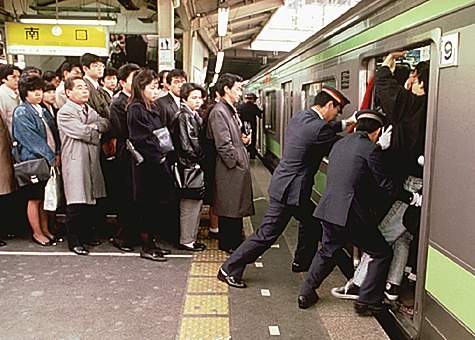















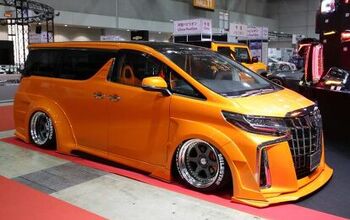
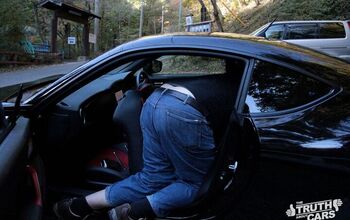
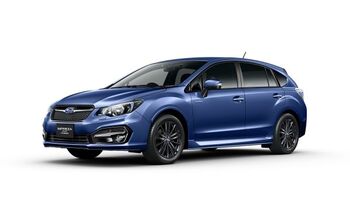

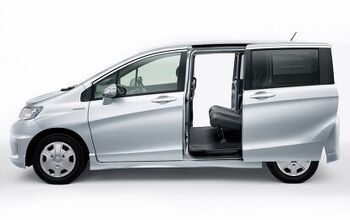










Comments
Join the conversation
Parking is a hassle anywhere near urban Tokyo. Your only options for casual parking are expensive small public car parks (some hold as few as 4 cars) or the robotic multi level car parks which can take a long time to retrieve your car from. But some people will do anything to own a car in Tokyo. I have seen the most amazing feats of parking ability in Ueno. Kei cars parked within 5cm of the left and right walls of a garage. How does the driver get in and out? Through the rear hatch. Cars only really make sense in the outer suburbs or country Japan. Up north in Hokkaido a car is virtually mandatory. But for young urban people I see the car as nothing more than a status symbol. It's very expensive and just not worth it when incomes have been steadily falling for well over a decade.
There is an awfui lot of tosh written here by people "who used to live or work in Tokyo." Parking in Tokyo is NOT a hassle. It is dead easy, far more so than in the bubble era. Parking spaces are NOT rare, but yes, they can be expensive if you rent them by the month, as I do. Last time I looked, parking in London, LA, Paris, Hong Kong or Shanghai/Beijing was hardly a breeze, so what's the big critique about Tokyo? Trains maybe wonderful but not everyone wants to be crushed on one going somewhere, so yes, owning a car maybe not be a necessity but it sure can make the quality of life easier, especially when shopping and in this fierce summer heat etc. Some parts of Tokyo are "hopelessly crowded" - true, like Shibuya, but then the same goes for HK etc etc (as above). So hardly breaking news. Having said all this, as General McArthur said, Japan is a nation of 12 year olds ie many want to be doing what everyone else is doing. When I came to Japan, buying a car was cool and a status thing. Now, it's the other way round and Japanese are getting rid of their cars, because of the cost of it all but also because so many others are doing the same. Pathetic. I spoke to one young Japanese girl who said proudly that "none of my friends own cars" as if that somehow made her and her friends some superior human beings. You didnt know whether to laugh or cry... Looking ahead, yes, Japan's train/subway systems are great and the nation's car industry faces major, major problems as Japanese give up their cars. All we can say to that is, thank heavens for emerging markets, otherwise there would be a hell of a lot of redundancies and the coming new breed of electric cars which might, just might, get Japanese juiced up about cars and driving again.